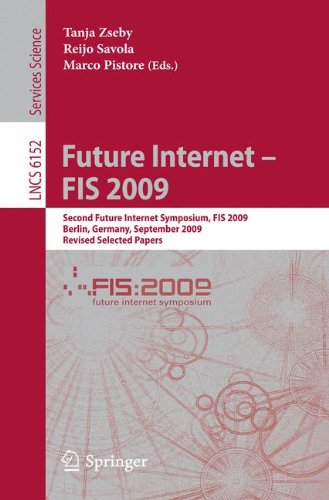

Most ebook files are in PDF format, so you can easily read them using various software such as Foxit Reader or directly on the Google Chrome browser.
Some ebook files are released by publishers in other formats such as .awz, .mobi, .epub, .fb2, etc. You may need to install specific software to read these formats on mobile/PC, such as Calibre.
Please read the tutorial at this link: https://ebookbell.com/faq
We offer FREE conversion to the popular formats you request; however, this may take some time. Therefore, right after payment, please email us, and we will try to provide the service as quickly as possible.
For some exceptional file formats or broken links (if any), please refrain from opening any disputes. Instead, email us first, and we will try to assist within a maximum of 6 hours.
EbookBell Team

4.4
42 reviewsThe Second Future Internet Symposium washeld during September 1-3, 2009 in Berlin, Germany. FIS 2009 provided a forum for leading researchers and pr- titioners to meet and discuss the wide-ranging scienti?c and technical issues related to the design of a new Internet. This second edition of the symposium con?rmed the sentiment shared during the First Future Internet Symposium, held in Vienna in 2008: designing the Future Internet is a very exciting and challenging task, and a new research community needs to be built around it. With overa billionusers,today’s Internet is arguablythe most successful- man artifact ever created. The Internet’s physical infrastructure, software, and content now play an integral part of the lives of everyoneon the planet, whether they interact with it directly or not. Now nearing its ?fth decade, the Int- net has shown remarkable resilience and ?exibility in the face of ever-increasing numbers of users, data volume, and changing usage patterns, but faces growing challenges in meeting the needs of our knowledge society. Yet, Internet access moves increasingly from ?xed to mobile, the trend towards mobile usage is - deniable and predictions are that by 2014 about 2 billion users will access the Internet via mobile broadband services. This adds a new layer of complexity to the already immense challenges. Globally, many major initiatives are underway to address the need for more scienti?c research, physical infrastructure inve- ment, better education, and better utilization of the Internet. Japan, the USA andEuropeareinvestingheavilyin this area.